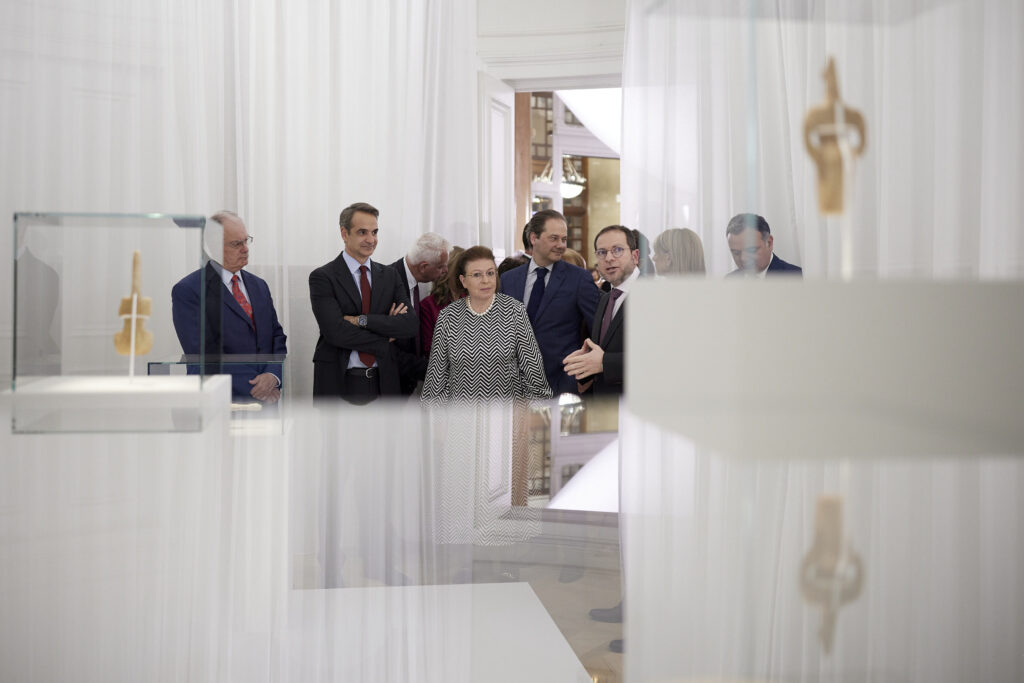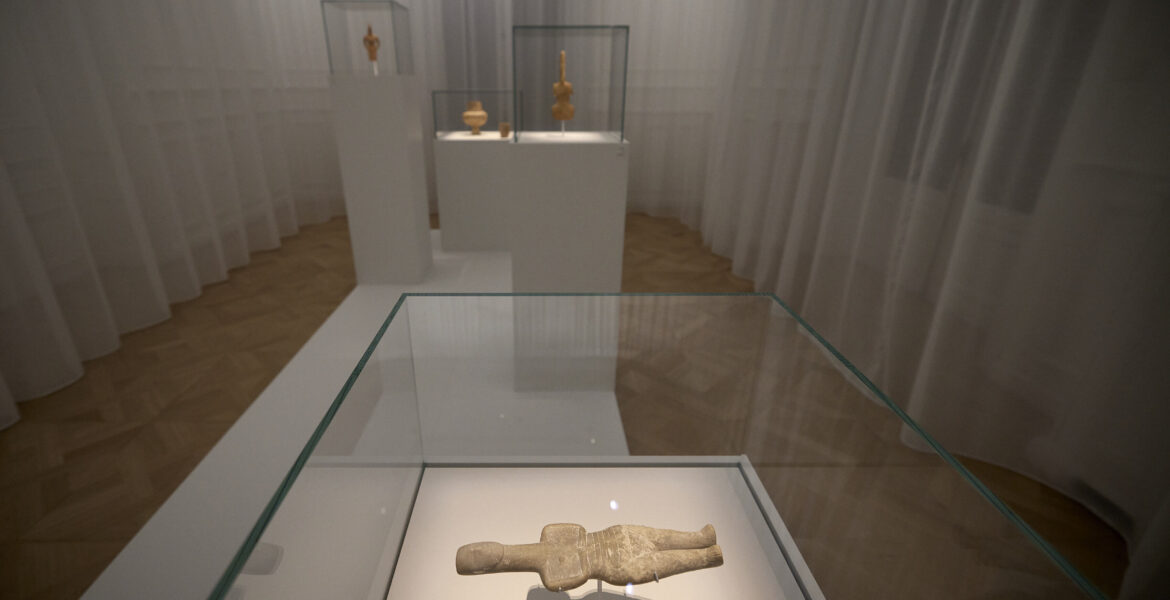A controversial deal that involved fifteen ancient Greek objects from a private Cycladic art collection owned by a U.S. millionaire went on display for the first time on Wednesday in Athens.
Following an agreement between Greece and New York's Metropolitan Museum of Art for the repatriation of 161 artefacts amassed over the years by businessman and philanthropist Leonard N. Stern, the Cycladic antiquities, which Greece describes as "masterpieces of unique archaeological value," arrived in Athens.
Speaking at a ceremony on the eve of the exhibition's opening to the public, Prime Minister Kyriakos Mitsotakis said it was "truly a special day for the cultural life of the country," describing the works as "priceless antiquities of rare beauty which are returning to their home."

After being displayed for a year at the Cycladic Museum in Athens, the 15 works - the most significant collection - will be displayed in New York from early 2024 for 25 years. They will gradually be returned to Greece.
The Stern collection features some 161 works made in the Cyclades cluster of islands in the Aegean Sea, primarily in the early Bronze Age. Greece's culture ministry says many of the objects in the collection, which includes figurines and vases, are considered to be "extremely rare" or unique examples of the art and technique of the Cycladic civilization.
The deal between Greece and The Met, which Greek lawmakers ratified in September, has stirred controversy in Greece, where the opposition and many archaeologists and conservators have called for their immediate, permanent return.
Five unions of archaeologists, conservators, and ministry employees called the agreement "a scandal" in a statement ahead of the opening.
Mitsotakis defended the deal as "a blueprint for other solutions to come", hinting at the "Elgin Marbles", as they are often known - 75 metres of Parthenon frieze, 15 metopes and 17 sculptures - which Greece had campaigned for since they were removed by British diplomat Lord Elgin in the early 19th century when he was ambassador to the Ottoman Empire then ruling Greece.


